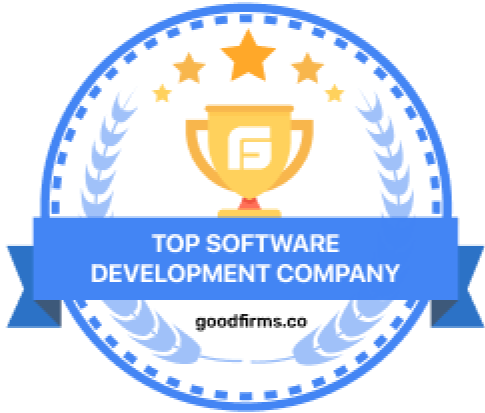As the real estate sector is changing, the role of technology in buying, selling, and managing property is becoming ever more vital. The UK proptech landscape is booming as innovative solutions address the distinct challenges of the industry. In this blog, we will explore the top 10 real estate technology trends that are likely to shape the UK market in 2025, with examples and use cases that illustrate their impact.
10 Pro Tech Trends to Know for 2025
- Artificial Intelligence and Machine Learning
Artificial Intelligence (AI) and Machine Learning (ML) are expected to transform the real estate sector by enhancing decision-making and providing better customer experiences. The technologies can analyze enormous data sets to identify trends, predict market fluctuations, and provide personalized recommendations.
Real-time Example:
Companies like Zoopla use AI algorithms to analyze property data and give insights on the trends for pricing. The integration of AI in its platforms, therefore, allows Zoopla to enrich user experience while providing useful market intelligence.
Use Case:
Predictive Analytics:
Proptech companies use AI to predict property values by analyzing historical data and market trends. This will enable investors to identify potential profitable opportunities and make informed investment decisions. For example, a real estate agency can use predictive analytics to identify which neighborhoods are likely to experience an increase in property values within the next few years.
AI can also be used for chatbots that assist the customers in their property searches by answering common questions and guiding them through listings on the basis of their requirements. This not only is improving customer service but also offloading the workload from a real estate agent, because they can focus on client needs that are more intricate.
- Virtual Reality (VR) and Augmented Reality (AR)
Virtual Reality and Augmented Reality technologies change property viewings in a way that potential buyers can explore properties from distant places. This is also more beneficial in a post-pandemic world since virtual tours have become so popular.
Real-time Example:
Matterport is the leading VR company, offering immersive 3D virtual tours for prospective buyers to explore properties from home. This technology has particularly been useful for international buyers who cannot visit properties in person.
Use Case:
More property viewings:
Real estate agents can use an AR application to superimpose details about the properties when there are physical viewings, or create interactive floor plans for clients to see and conceptualize better. Thus, a homebuyer will have the opportunity to determine where his furniture would actually go in the new home prior to making the purchase.
Besides, VR can be used in marketing where developers present whole neighborhoods or developments through virtual tours that give potential buyers a sense of community before they ever step foot in the area. This immersive experience is likely to influence the buying decision.
- Blockchain Technology
Blockchain technology is becoming popular in the real estate sector because it allows for more transparency, security, and efficiency in transactions. It reduces fraud by offering a decentralized ledger for property records and streamlines processes.
Real-time Example:
Propy is a global real estate transaction platform that uses blockchain to facilitate secure cross-border property transactions. Using smart contracts, Propy automates the majority of the buying process so that no one receives their funds unless all parties fulfill their obligations.
Use Case:
Tokenization of Assets:
Blockchain technology can tokenize real estate assets, enabling fractional ownership, and makes it possible for investors to buy shares in high-value properties without large capital requirements. For example, a luxury apartment may be tokenized into shares that multiple investors can purchase, democratizing access to high-end real estate investments.
In addition, blockchain can make due diligence processes easier by providing an immutable record of ownership history and property details. This makes buyers and sellers trust the system while making transactions that usually require a lot of paperwork much easier.
- Internet of Things (IoT)
The Internet of Things is changing the way properties are managed by allowing devices to communicate with each other. Smart home technology allows homeowners to control different aspects of their properties from a distance, making it more convenient and energy efficient.
Use Case:
Smart Building Management:
Property managers can use IoT sensors to monitor building conditions, such as temperature and humidity, in real-time, which helps them take proactive measures to maintain the building and keep tenants satisfied. For instance, if sensors notice a sudden increase in energy usage in a commercial building, managers can look into potential issues before they become major problems.
IoT devices also enable better security features, such as smart locks and surveillance cameras that can be monitored through smartphones. This integration does not only enhance the safety of residents but also gives value to rental properties since it appeals to tech-savvy tenants who seek modern conveniences.
- Big Data Analytics
Big data analytics is becoming pivotal in the real estate sector, as this will allow stakeholders to make informed decisions based on comprehensive market insights. Thus, companies can identify trends and assess risks through large datasets while optimizing pricing strategies.
Real-time Example:
Rightmove, one of the top property developers in the UK, utilizes big data analytics to track user behavior on its platform. This information helps Rightmove tailor its marketing strategies and improve user engagement.
Use Case:
Market Analysis Tools:
The proptech companies have developed tools that enable an investor to analyze market trends based on demographic data, economic indicators, and historical sales figures, thereby making it a smarter investment decision. For example, an investor can use big data analytics tools to evaluate which area is experiencing population growth or job creation, which indicates rising property values.
In addition, big data allows for personalized marketing strategies where companies can target specific demographics with tailored advertisements based on their browsing behavior or previous purchases—maximizing conversion rates while minimizing wasted ad spend.
- Advanced Property Management Software
The need for effective property management solutions is increasing as landlords look for ways to streamline operations and enhance tenant experiences. Modern property management software integrates various functionalities into one platform.
Real-time Example:
Buildium, a leading property management software provider, offers features such as online rent payments, maintenance requests, and tenant screening—all designed to simplify property management tasks for landlords.
Use Case:
Automated Communication Systems: Property management software can automate communication with tenants regarding lease renewals or maintenance updates—enhancing tenant satisfaction while reducing administrative burdens on landlords. For example, automated reminders about upcoming lease expirations help ensure timely renewals without manual follow-ups.
These services also have advanced reporting features, which enable landlords to prepare detailed financial reports quickly and gain insight into income versus expenses, thus helping them make informed decisions about future investments or improvements needed in their properties.
- Sustainability and Green Building Technologies
With growing environmental concerns, sustainability has emerged as an important aspect of real estate development. Technologies that increase energy efficiency and minimize carbon footprints are gaining significance both for developers and buyers.
Real-time Example:
BREEAM is the UK-based certification of sustainable buildings provided by companies like Building Research Establishment Environmental Assessment Method. Developers seek BREEAM certification as a marketing advantage while appealing to the eco-conscious consumer.
Use Case:
Energy Management Systems: Smart building technologies allow property managers to view energy consumption patterns in real-time, which means that they can implement strategies to eliminate waste and reduce the costs of operations. For example, integrating solar panels with smart meters helps buildings use energy based on the level of production throughout the day.
Additionally, sustainable practice developers have increased demand and willing buyers who pay premiums for green homes that contain energy-efficient appliances or even green roofs, thereby indicating how sustainability not only goes to the environment but to profitability too!
- Digital Marketing Strategies
Digital marketing has become the best tool for real estate companies that want to effectively market their properties to potential customers through online property searches.
Innovative marketing is a combination of social media, SEO techniques, and targeted advertising campaigns.
Real-time Example:
Proptech companies such as HubbleHQ, for example, focus on office space leasing. They use content marketing and social media engagement to attract businesses looking for flexible workspace solutions.
Use Case:
Virtual Open Houses:
With the aid of live streaming technology, real estate agents can hold virtual open houses where they get to show properties and actually answer questions from potential home buyers in real time. Not only does this provide more exposure to the wider audience, but it’s also an interactive experience no open house can offer.
Additionally, leveraging data analytics tools in conjunction with digital marketing will allow the agent to streamline their efforts based on metrics of performance—ensuring that money is spent toward channels providing the greatest ROI!
- Sophisticated CRM Solutions
Advanced CRM Solutions for real estate professionals can be quite advanced. For example, this type of system allows agents to maintain leads and understand the client’s preferences as well as how they prefer to communicate with them.
Real-time Example:
Zoho CRM, used by most proptech companies in the UK, has a feature set specifically designed for real estate professionals, such as lead tracking tools to help agents follow up on potential buyers efficiently.
Use Case:
Lead Scoring Mechanisms:
Advanced CRM solutions can include lead scoring algorithms that rank leads by the probability of conversion so that agents can concentrate their efforts where they will have the greatest impact. For instance, an agent may receive alerts on leads that have shown high engagement levels through website interactions or social media activity related directly back toward specific listings!
Moreover, the integration of communication tools in these CRMs facilitates smooth interactions between agents & clients through email/text notifications, ensuring timely responses and fostering stronger relationships over time!
- Virtual Assistants and Chatbots
The integration of virtual assistants and chatbots into real estate websites is enhancing customer service by providing instant responses to inquiries at any time of day or night. These AI-driven tools help streamline communication between agents and clients.
Real-time Example:
A company like Opendoor, which makes widespread use of chatbots on its platform, provides immediate answers regarding listings or services while saving agents’ time for other more complex inquiries to answer.
Use Case:
24/7 Customer Support:
Chatbots can handle common questions about properties or processes—ensuring potential buyers receive timely information even outside regular business hours! For instance; if someone asks about available homes within specific criteria they might get immediate suggestions based upon current inventory rather than waiting hours/days until someone gets back!
In addition, deploying AI-based chatbots enables enterprises to gain insights into consumer preferences and behavior through continuous conversations -which further helps in making continuous improvements in all facets associated with service delivery itself!
Conclusion
The UK proptech landscape is changing at breakneck speeds as innovative technologies reshape the way properties are managed, marketed, and sold. Ranging from AI-driven analytics providing insights into market trends to advanced CRM systems that streamline lead management processes—these top 10 real estate technology trends will heavily impact the industry by 2025.
As businesses adapt to these changes within real estate technology, they must stay informed about emerging trends while leveraging tools offered by leading proptech companies. Understanding these developments will empower stakeholders across the sector, from developers seeking competitive advantages among top 10 property developers UK, to investors looking capitalize on opportunities presented within this dynamic marketplace!
If you are a property tech business looking to get started with the software solutions for the future, we are here to help you. You can get in touch with us!

Start a Project with Ajackus











































































